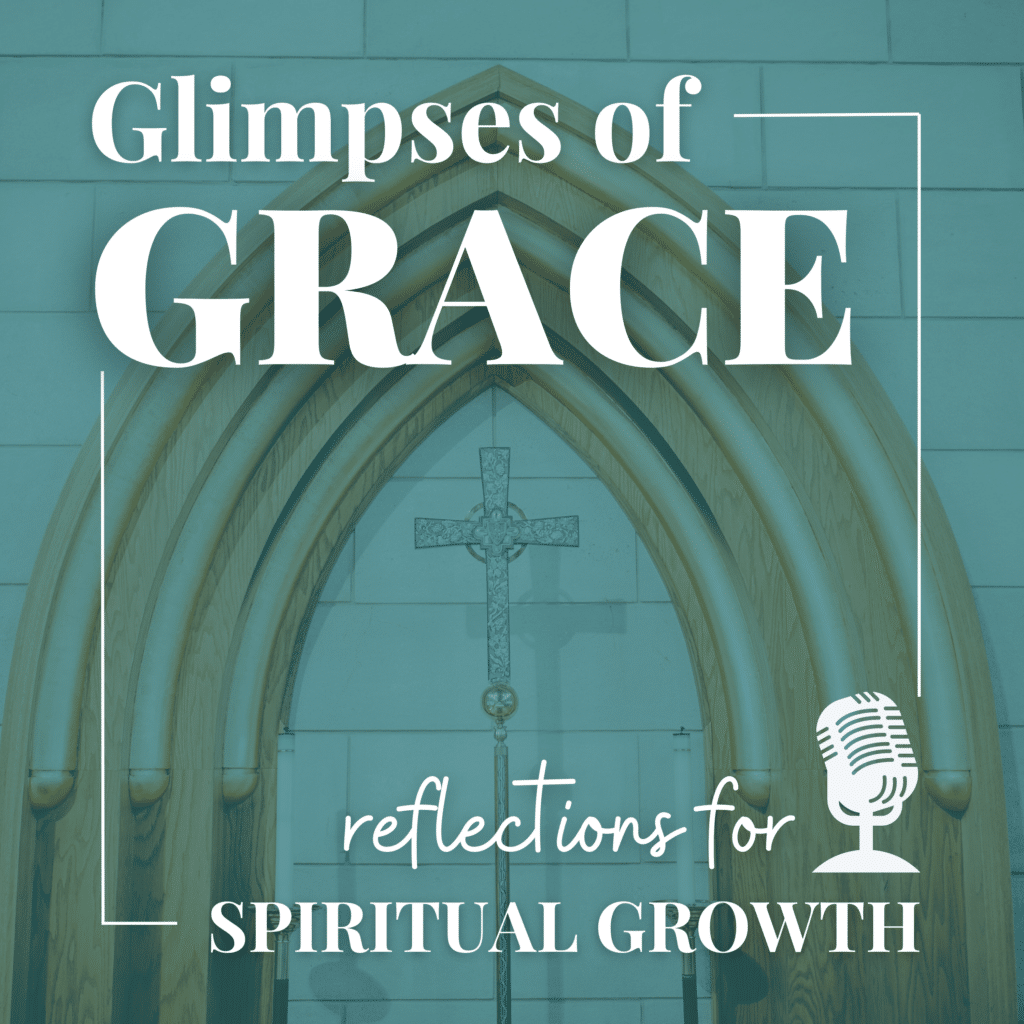Prepare the Way
In this episode, we explore the power of voices that resonate beyond the noise of our world. This Advent you’re invited into the wilderness—a quiet, honest place where the song of God’s truth can be heard. Are we willing to carry the song into our crowded lives, inviting others to join in and prepare the way?

The Glimpses of Grace podcast is a ministry of Grace Episcopal Church in Gainesville, Georgia. We are passionate about supporting the spiritual growth of souls, and we hope these sermons and conversations meet you where you are and enrich your soul as we all continue to make meaning in the world today.
Glimpses of Grace on Spotify
Transcript
Imagine standing in a crowded room where tons of conversations buzz around you, each vying for attention. Some voices are loud and commanding, others soft, earnest. Amid the noise, one person begins to sing—not loudly, but with a tune so haunting and true that it cuts through the buzzing room. At first, only a few stop and listen.
The song continues, and conversations begin to silence. Its melody spreads, and more people are captivated by its beauty. The singer doesn’t shout to be heard but instead offers something so compelling that it draws people in.
This scene captures the essence of the prophetic voice in scripture. Prophets like Isaiah, Micah, and John the Baptist didn’t strive to outshout the competing voices. Instead, they offered a message so resonant, so deeply aligned with God’s truth that it invited people to listen and respond.
John the Baptist’s voice echoes Isaiah’s: *the voice of one crying out in the wilderness, prepare the way of the Lord, make his paths straight. Every valley shall be filled, and every mountain and hill shall be made low, and the crooked shall be made straight. The rough ways made smooth, and all flesh shall see the salvation of God.* This message comforted people during the Babylonian exile.
This message captivated those in the region around the Jordan. Yet there were other voices in the air—voices of power promising security through wealth or violence. In Luke’s gospel, he situates us in a place and time with names: Emperor Tiberius, Pontius Pilate, Herod, Philip, Lysanias, Annas, Caiaphas. These men of power wielded influence in their political territories and religious institutions.
And yet people flocked to the wilderness to listen to the son of Zechariah. Why? Because John’s voice, like Isaiah’s before him, pointed to something beyond self. His call to prepare the way resonated with those longing for hope. His call to share coats and food—to live generously—was heard by those wearied by exploitation and oppression. John’s voice was a melody of truth that stirred people to *metanoia*, a change in their way of living.
Yet John’s power did not lie in his own words. He was like the singer in the crowded room, drawing attention to the true song—the voice of God calling humanity back to right relationship. Prophets like Isaiah and John are not the source; their voices and words remind us of whose we are and who we are called to be.
This Advent, we too face competing voices. Some shout that our worth lies in what we consume. Others whisper despair, urging us into games of individualism and comparison. Amid this noise, the prophetic voice still calls: *Prepare the way.* It asks us to listen deeply—to reorient ourselves away from those things that distract us, those things that separate us from God.
Imagine now that you are no longer in the crowded room. The music has led you into the wilderness. What does wilderness look like to you? Is it a deserted place? It’s where change happens—where there’s no buzz of competing voices, no power, wealth, or privilege—just an emptiness that is somehow full. Full of the echo of that haunting, true melody.
This is where prophets like Isaiah and John invite us to go: a quiet, honest space in which the Word of God can reach us most directly. Once we hear the song, we can’t help but join in—humming it as we enter back into the crowded room, carrying it with us. We hope others will stop to hear it—and maybe sing along—for this song is not just a call to repentance.
It’s a song of hope and expectation. It’s a song that has the power to transform the world.
So let us prepare the way. Let us sing the song. Let us watch as the world is made new.